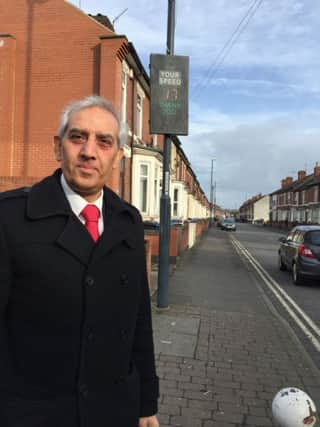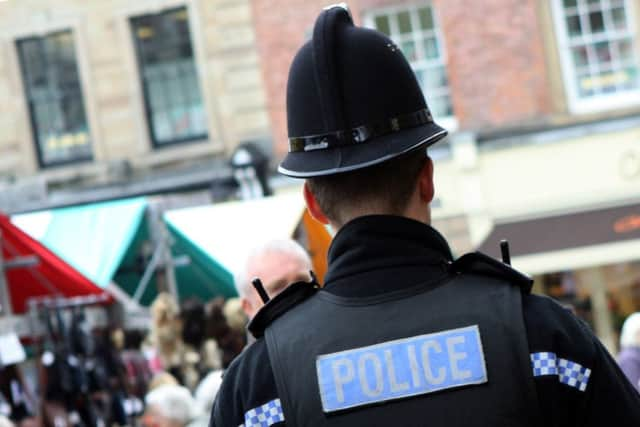Derbyshire police chief outlines plans for force's future


Derbyshire’s new Police and Crime Commissioner Hardyal Dhindsa is on a mission - perhaps most notably to make residents understand the importance of his role.
“I’ve heard a lot of people say, ‘Why are we bothering with a crime commissioner at all - why not take that money and put it into the police force?’. But you need the force to be accountable, and I think that my role is much more effective than the old police authorities.
Advertisement
Hide AdAdvertisement
Hide Ad“One of the founding principles of policing is that it is done by consent - that goes all the way back to Robert Peel,” he says. “People need to want to be policed, and to accept the role and contribution of the police.


“But to the same extent, we have never been in a position that every street corner in every community is safe. We need to work with communities to tackle the issues that are specific to them.”
It is now around two months since Mr Dhindsa took on the role of Derbyshire Police and Crime Commissioner - he served as deputy to the county’s first PCC Alan Charles - and narrowly beat Conservative candidate Richard Bright to the job.
The Labour candidate polled 78,858 votes to Mr Bright’s 77,245 - still relatively low in terms of overall turnout, but the most votes ever received by a single Derbyshire politician, he says.
Advertisement
Hide AdKeen to carry on with Alan Charles vision, he says he is also keen to move the role forward.


Advertisement
Hide AdHe is pledging to visit every town, village and city in Derbyshire in a bid to tackle local concerns, and to ensure every corner of the county has a voice.
He is also pushing for greater diversity in the force, to ensure that the organisation’s makeup truly reflects the county’s racial and social mix - not just within the rank and file, but amongst the more senior levels.
And he says he is tackling the Government about funding shortages in Derbyshire - which he says equates to around £7m less than comparative forces, or 233 more police constables that could be pounding the beat.
Advertisement
Hide Ad“I wrote to Theresa May before I was elected asking for an urgent review,” he says. “And I’ve written to her again since I was elected. I’m now hoping for a meeting with policing minister Mike Penning to try and get this addressed.”
But Derbyshire is also moving on, he says, to reflect the changing nature of crime in our society.
Advertisement
Hide AdNew technology is being introduced to ensure beat bobbies spend more time in the communities they serve - using tablets to stay in touch with senior officers, as well as mobile policing units which will place them in the heart of communities.
Crime has also moved online, and the threat this poses to public safety has gone with it, he says.
Advertisement
Hide AdBut online crime is unseen - from fraud, to organised crime, to child grooming, to terrorism.
“These are crimes without boundaries,” he says. “Organised criminals don’t respect county boundaries and we need to be working more closely with other forces and partners to tackle it.”
The constabulary is also expanding its cyber-crime provision, following the introduction of the first Digital PCSO role last year. The force is now recruiting a second digital PCSO, and is looking to further expand the offering.
Advertisement
Hide AdBut he says he also wants to place policing firmly back in the hands of communities, and to make communities take greater ownership of their specific concerns.
Advertisement
Hide AdThis could include a greater focus on traditional crime-fighting forces like Neighbourhood Watch, or rethinking the role of Special Constables, linking them much more closely to the communities they live in. Mr Dhindsa has also pledged to a significant expansion of the police cadet programme, to help build better relations between the constabulary and younger people.
“We need to be working with community groups to establish what the issues are in different towns, villages and communities,” he says. “But this needs to be about partnership - and if there are problems then people need to work with me to find solutions. For most, it won’t be risk and threat issues like organised crime. It will be anti-social behaviour on the street corner, or dog fouling. But these are issues that matter to people as well.”